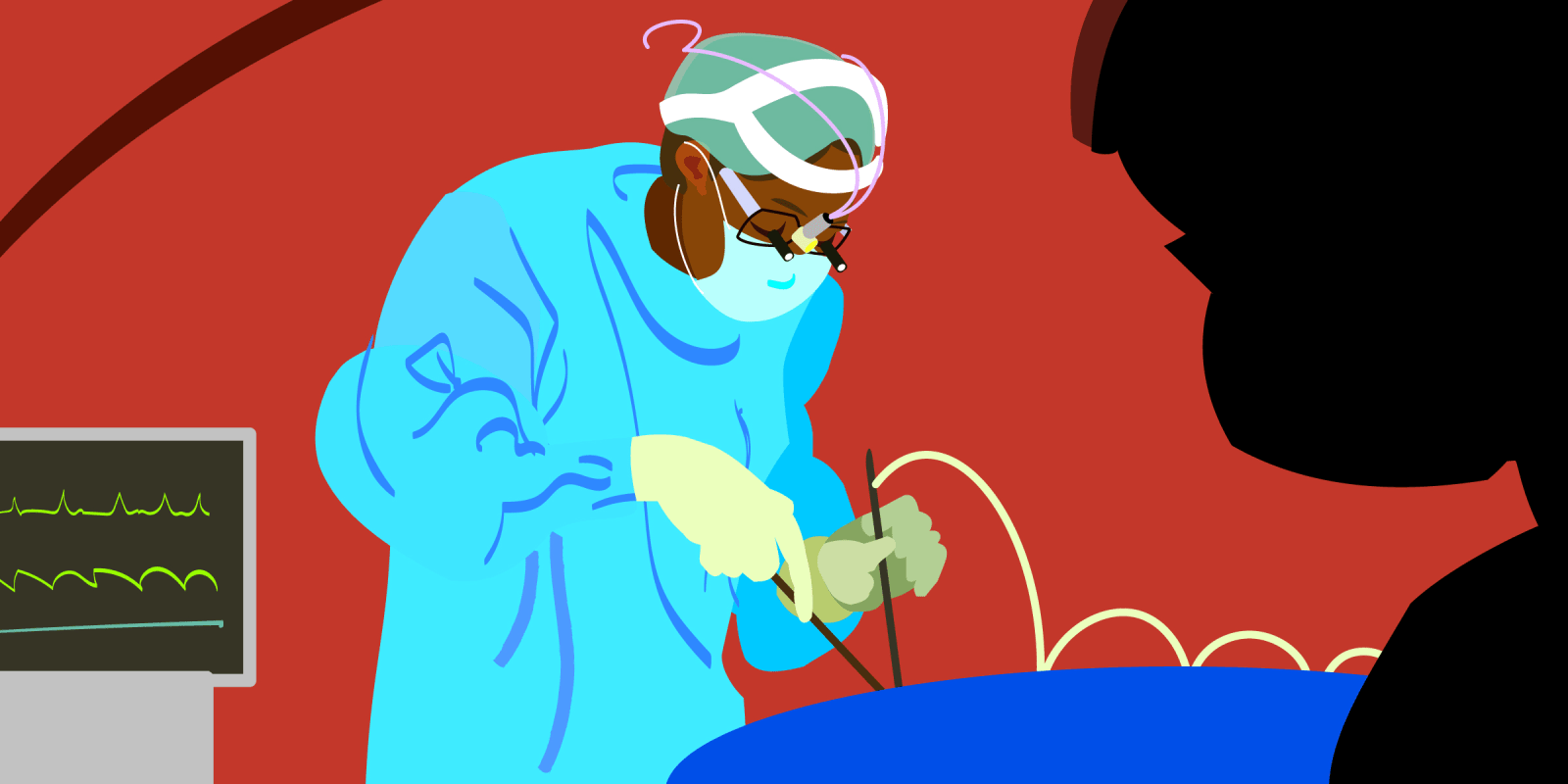Having the lives of fellow humans literally in your hands is intimacy that only surgeons can fully grasp; it never stopped stopping my breath, never dulled me to its privilege. I never stopped saying to others in the operating room, “Look at this. Isn’t it beautiful?”
How do you explain enveloping a living liver in your hand, its firm, slippery smoothness, or the pleasure of sewing bowel segments together in a way passed down by pioneering surgeons, laying it back in place, knowing no one else will see or appreciate the — dare I say — artistry of it?
I was taught by great and generous surgeons. I learned well. But I never considered myself special. Electricians learn too. Lawyers. Teachers. The difference, perhaps, is intensity. And immediacy: Dozens of big and small decisions need making during an operation, instantly. There are no hiding places in the OR.
Receiving that trust is a daunting honor. As I wrote in my memoir of surgical residency, “A surgeon can kill you, and you’d sleep right through it.” I should have said, “An inadequately trained surgeon.” Surgical residency gets bad press: too hard; cruel, even. But, at least in my long-ago time, it inculcated the most fundamental requirements of a surgeon: knowing your limits and accepting responsibility. Doctors who don't know when they’re in over their head are dangerous. Ones who avoid responsibility for outcomes aren’t to be trusted.
My career straddled very different eras. In training, the easy rotations were those in which I spent all days and every other night in the hospital; on the rest, it was 12 days and nights out of 14. Entering San Francisco General Hospital as chief resident on the trauma service, I didn’t leave for 60 days. I won't argue it was sensible (actually, I might), but I came out well trained, comprehensively experienced, and tempered by fire. Now, with working-hour restrictions (based on a mischaracterized incident in NYC), it’s less true. Feeling unready, graduates increasingly seek subspecialty fellowships. More and more, we general surgeons are relics of times past.
I finished residency committed to being there for my patients, always. In my practice, I made hospital rounds at least twice daily, more for the sick. Whether on or off call, I felt better seeing my postops every day. My mentors wouldn’t have accepted anything less. Looking back, was it an overblown sense of irreplaceability, that no one could care for my patients as well as I? Whatever it was, I felt bad if I didn’t. And yet, when I retired, people did fine.
So I burned out. This era of reduced hours isn't all bad. I imagine newly trained surgeons aren't as likely to bail out early. The pleasures of surgery remain: the marvels of the human body, knowing its anatomical secrets, the nooks and crannies, the hidden spaces into which you're allowed entry, knowing what to do. It’s still a binary world, though: You succeed (mostly) or you fail (sometimes). But the exhaustion? Maybe not so much. These days, surgeons might have a life, as they did during training.
Many hospitals now have both medical and surgical hospitalists, 24/7. Calls from the ED, the bane of my existence, no longer interrupt schedules of office-based surgeons, or their sleep. The hospital-based have predictable work hours and freedom from much of the administrative hassles that drove me nuts.
After retiring, I spent several months as the first and only surgical hospitalist in town, working 10-hour days (sometimes more) five days a week. Other than the lack of long-term connection to my patients, I liked it. Later, I spent several relatively stress-free years assisting on complex cancer operations, able to continue to be useful yet sleep through the night.
In many ways, a general surgeon is like a family doctor who can operate. I'd argue there's no specialty that demands the same breadth of knowledge and range of skills. Surgery encompasses the pleasure of accomplishment and, occasionally, a heart-rending feeling of failure — the ability to do much good while balancing on the scalpel edge of the potential for harm. I felt it every time I entered the OR, or left it to talk to waiting families, with good news or bad. I felt it in every office consultation where I tried to instill hope and confidence, to allay fears, to map a path from where we were to where we wanted to be.
Connecting. Able to help. That was always the best part.
What is the best part of being a surgeon to you? Share in the comments.
Sidney Schwab, MD, FACS, is a retired surgeon whose blog is at surgeonsblog.blogspot.com and whose published memoir of surgical training in pre-restriction times, “Cutting Remarks; Insights and Recollections of a Surgeon” can be found on Amazon.
Illustration by Jennifer Bogartz






